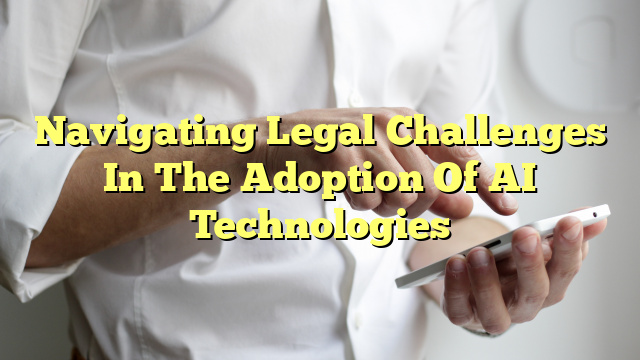Table of Contents
Introduction
Artificial intelligence (AI) has swiftly become an integral part of our world by enabling technology to automate processes, identify patterns, and make decisions in a wide range of industries. In the legal sector, AI is used to automate legal services, assist lawyers in their research, and provide an additional layer of understanding to complex legal documents. However, AI adoption faces legal challenges due to its wide-reaching implications for privacy, data protection, and liability.
Legal Issues with AI
AI poses a particular set of legal issues because it can interact with people and systems in ways that traditional software cannot. This is largely due to the fact that AI systems rely on data to inform their decisions, which can be difficult to regulate or control. AI systems are also capable of making decisions in real-time, without the need for human intervention, making it difficult to predict or regulate their behavior. As a result, AI poses a unique set of legal questions, including:
- Data Protection: How can data be protected from AI systems?
- Privacy: How can privacy be protected when using AI?
- Liability: Who is responsible for the decisions made by AI systems?
Challenges of Adoption of AI
The adoption of AI technology also poses challenges in terms of social and economic impacts. AI systems are replacing traditional jobs and displacing workers in many industries, leading to a rise in unemployment and a decrease in wages. Additionally, AI systems are often biased towards certain groups due to historical data and can lead to discriminatory practices. Finally, AI systems are being used to personalize and target advertisements, which can be seen as an invasion of privacy by some.
Problematic AI in the Legal Sector
AI technology is becoming increasingly prevalent in the legal sector, with AI-powered systems being used to automate legal services, assist lawyers in research, and provide additional insights into complex legal documents. However, AI technology can also be used for other, more problematic purposes, including personalizing legal services to specific individuals or groups, or even predicting legal outcomes. This poses a distinct set of legal challenges as it can lead to biased or unfair decisions and can be difficult to regulate or control.
AI technology has the potential to revolutionize the legal sector by improving efficiency and providing more accurate legal services. However, the adoption of AI technology in the legal sector is not without its challenges. AI systems can lead to biased decisions, data breaches, and a lack of accountability. Law firms must be aware of the legal implications of AI and take steps to ensure that their AI systems are compliant with existing laws and regulations.


Such legal issues are certainly worth considering before investing in AI, particularly since adoption is on the rise. Navigating the dynamics of a constantly-evolving legal landscape surrounding AI could prove immensely beneficial for users.